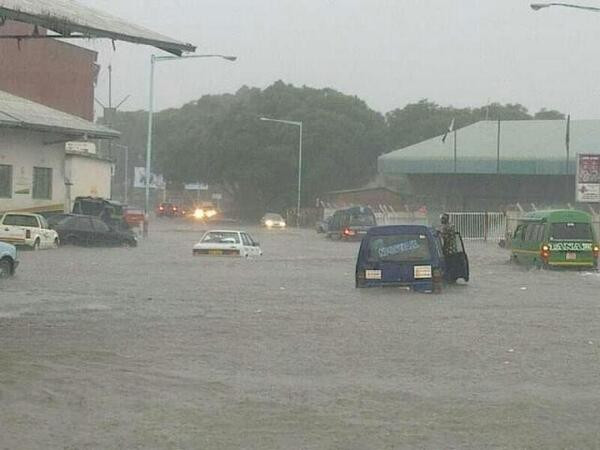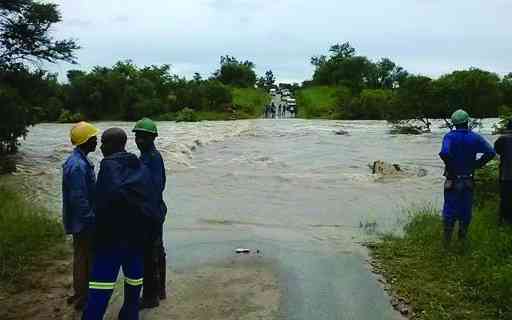
ZIMBABWE has recorded 38 rainfall related deaths since the onset of the rainy season.
Speaking during the national civil protection committee meeting yesterday, principal administrative officer for the Civil Protection Department, Nyararai Mutikuwe, said the rains left a trail of destruction.
“To date, a total of 38 deaths have been recorded, 2 247 households affected, 101 schools damaged, 11 clinics, 6 shops and Whawha Prison cells,” Mutikuwe said.
“Infrastructure especially bridges and roads have been damaged. Dam breach was recorded at Makwateni Dam in ward 12, Nkayi district.”
Mutikuwe said the figures were worrying.
“In the 2022/23 rainfall season, a total of 35 lives were lost and 61 schools destroyed and at least 50 roads affected,” he said.
Meteorological Services Department head meteorologist, James Ngoma, warned of more rains accompanied by hailstorms, lightning and strong winds.
“In the second week of February that’s when we are expecting more flash floods and things that are more prone to the higher amount of rainfall,” Ngoma said.
- Climate change forces Zim to finally take up irrigation
- MSD forecasts low rainfall, heat this week
- WFP forecasts good harvest, if rains persist
- Zim ill-equipped to avert natural disasters
Keep Reading
“However, we are still in the El Nino phase so we are expecting it to end as we enter the month of March.”
He urged members of the public to exercise caution, particularly during thunderstorms.
Meanwhile, Mines ministry chief engineer Michael Munodawafa has said they recorded 237 mine fatalities last year, with unregistered mines contributing a big chunk.
“2023 was one the worst years in terms of mine disasters after the 1972 disaster at Hwange. It must be noted that some of the accidents go unreported. This is just a small number,” he said.
“In 2021 we recorded 139 fatalities, in 2022 we recorded 182 and in 2023 the number increased to 237.”
He said most of the fatalities happened at 60% of unregistered or illegal mine operations for which the ministry had no control.
“Illegal miners are nomadic such that you see them in this district and next week in the other, having caused disaster in that district.
“Most of them are not trained. Some of them go to the waterways and of all those people who are mining...less than 60% are registered,” he said.
Munodawafa said the ministry had embarked on a programme to train miners on safe mining methods across the country.
“This February, we will be training small-scale miners whether registered or not. The ministry is developing a policy to regulate mining in old mining areas, which are often dangerous due to abandoned shafts and unstable ground.”










